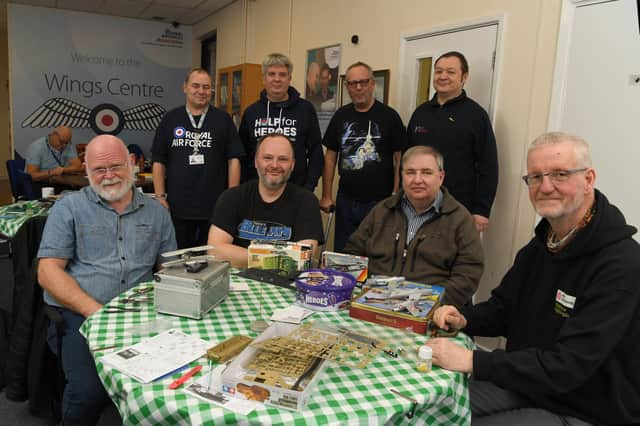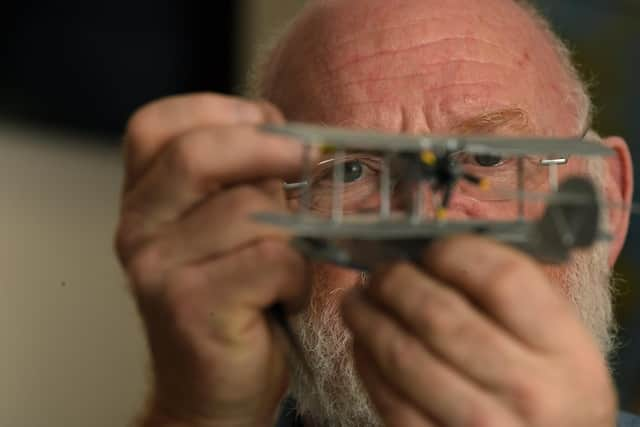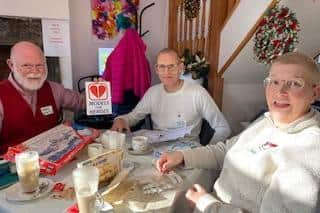Modelling for Heroes Preston: building together with the model group helping our veterans
This article contains affiliate links. We may earn a small commission on items purchased through this article, but that does not affect our editorial judgement.


"I've been modelling for over 50 years, but it wasn't until I retired from the police that I actually went on a mental health first aid course and realised that modelling had kept me sane through some of the traumatic episodes you deal with as a bobby," explains Sam, 63. "It provided a mental sanctuary that, at the time, you didn't realise was being provided.
"After going to a car crash with lots of bodies about, when you came home and went out to the workshop to start building, I was actually protecting myself," he adds. "Putting myself into a safe place to do a thing which took me away from the worry and the stress of PTSD and other mental health problems which can occur. It's good for you."
Advertisement
Hide AdAdvertisement
Hide AdSam is also part of a group called Modelling for Heroes Preston, a regular gathering which helps veterans cope with Post Traumatic Stress Disorder (PTSD). With some ex-service people returning to society with potentially disabling anxiety and mental health issues, a sense that there is no refuge can arise. That's where Modelling for Heroes comes in.


Offering people companionship and a welcoming non-judgemental environment, the group was formed in 2018 and is supported by the charity Modelling for Heroes, which was originally affiliated to Help for Heroes. Having previously met at RAF Association Wings Centre on Fishergate in Preston, the group now gathers at the Toll Bar Cottage Cafe in Broughton.
"You can't think about traumatic events whilst model-making; you have to concentrate," says Sam, who lives in Preston. "I just want to give veterans the opportunity to have a break and provide somewhere for them, even if they haven't modelled before - that doesn't matter, we can show you the basics.
"Some people enter with trepidation written across their face but, after 15 minutes, they've had a coffee, they've sat down and opened a box, and they're concentrating," he adds. "They start calming down and talking, and that talking is the main thing. The model-making is just a vehicle to get people to a safe environment with like-minded people with similar experiences.
Advertisement
Hide AdAdvertisement
Hide Ad"Even if you just want to sit there quietly and model, that's fine. It's all part of the occupational therapy. I want to give back through modelling."


Having been given a helping hand by the Lancashire branch of the International Plastic Modellers’ Society (IPMS) to get things off the ground, Modelling for Heroes is also open to former emergency services staff as well as people's partners and carers. The group offers the chance to talk without feeling the pressure of having to open up or discuss anything in particular.
And art therapy has been shown to be particularly effective when it comes to helping people address mental health issues whilst also building confidence, improving focus, and developing friendships. In fact, PTSD sufferers have reported that practical hobbies can be especially helpful in the healing process.
"It's rewarding to help," says Sam. "The group provides people with a break and a way to get away from things. That's why lockdown was hard - we did Zoom modelling, but it's not the same as being there with somebody because it's not as interactive or personal. It's great to be back in person, even if we've only had a few people from the previous group turn up so far."
For more information, call Sam on 01772 463 911 or via email [email protected]. For more help, visit https://combatstress.org.uk/ or https://www.samaritans.org/